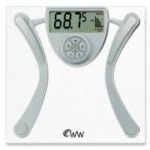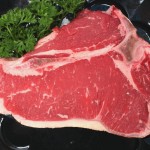Whether your goal is to lose fat or gain muscle, an imperative step in your successful ability to do so is understanding how you need to handle your Calories Per Day. There is a certain amount you should aim to hit over your maintenance (the amount that keeps you at the weight you are) if you are trying to put on size, and a certain number under if you are trying to lose stubborn body fat. What most people do not factor in, however, is the activity levels they reach on each particular day. We’re going to focus on the most universal of these, which is some form of physical activity (lifting weights/cardio). For those of you with an active job (construction, for example), you need to make sure that also comes into play as you engage in much more activity (and therefore, burn much more calories) throughout the day than an individual who works at a desk. Again, however, the focus will be on the most expected and understood form of activity, which is gym.
When people figure out the amount of calories they require for the day in order to slowly take their body in the direction they desire, they often overlook a key component: off days from the gym. This may seem like common sense to some, but many people set themselves on a calorie count and stick with it universally throughout each day of the week, regardless of whether they hit the gym or not. This can (over time) add unwanted fat gain when trying to gain size, or be a constant small road block when trying to lose body fat.
First, let’s look at the individual who is attempting to gain size. On days off from the gym, the calories stay the same as on days he goes. He or she might believe that while attempting to put on size, the few days of excessive caloric intake can be beneficial as the days are far and few in between, and the body is recovering from intense workouts and needs the nutrients anyway. Why does this not work? Building Muscle Mass focuses on explaining why bulking (adding size) faster does not produce more results, and is counter-productive. Even though the individual is not going over the top by stuffing his or her face extensively each day as is exampled in the article for best effect, the process is still the same, albeit on a smaller scale. Think about it this way:
If they are already eating 500 calories above maintenance on training days, they are on very good terms when it comes to giving their body the nutrients it needs to grow but not over-doing it by giving it more than it can handle naturally (assuming they are natural, at which point there is only so much your body can do to rebuild itself in a specific time frame). By matching that amount on days they are off from the gym, they are not essentially giving your body anywhere from 800-1200 (give or take) extra calories instead of the usual 500. In what way can this be a benefit? None. Unless they have been under-eating on other days and this can be used to help diminish the losses, this plan of attack won’t speed their intended size gain (muscle), and instead only speed the much-less optimal size gain (fat and muscle).
Second, an individual who is cutting (trying to lose body fat) must also realize that without gym on that particular day, their caloric total for the day will drop even more as they do not have that extra caloric expenditure to account for. What does this mean? Eating 2, 200 calories on training days may now turn to 1,800 calories on the off day. Don’t make the mistake of eating the same amount or you will halt your progress because you’re giving your body more than it needs (perhaps your maintenance is 2,200 calories and you’re using gym as the caloric expenditure that puts you under – in this scenario, you are not progressing calorically for the day if you eat the same amount on your off day). Again, on the other hand, eating the same amount would only make sense if you have been under-eating during your cut and need to make up some calories (I doubt this has been the case, as limiting calories on a cut is hard enough as it is, but you never know!).
A week off from the gym has to be accounted for in the same manner, you are no longer counting on that extra physical activity to burn some calories, so you must adjust accordingly for the week if you want to stay on top of your goals. Some people decide to ease up because of their week off, which is fine as long as you are aware of what you are doing. I’m not trying to come off strict, but there is a difference between knowingly easing up and doing it unaware of the consequences. Vacations can be treated the same way.
On an ending note, this sounds way more complex than it is. Simply be aware of the fact that your off days from the gym require a slight caloric change (eating a bit less – in both cases of fat loss and muscle gain) to counteract the loss of extra caloric expenditure that’s usually there from the gym, and you’ll be fine. Furthermore, if you slip up here and there it is not a big deal (don’t go crazy!). The important thing to note is that you should be aware of this, and not be completely universal with your caloric intake throughout the week. Good luck!
*I hope I’m not going to make you go insane with this little tip, but if you’re doing legs in the gym one can assume you can allow yourself a little bit more caloric freedom than on a day you decide to do arms. Just a thought. Good Luck!
Incoming search terms:
- what to eat on days off from the gym







